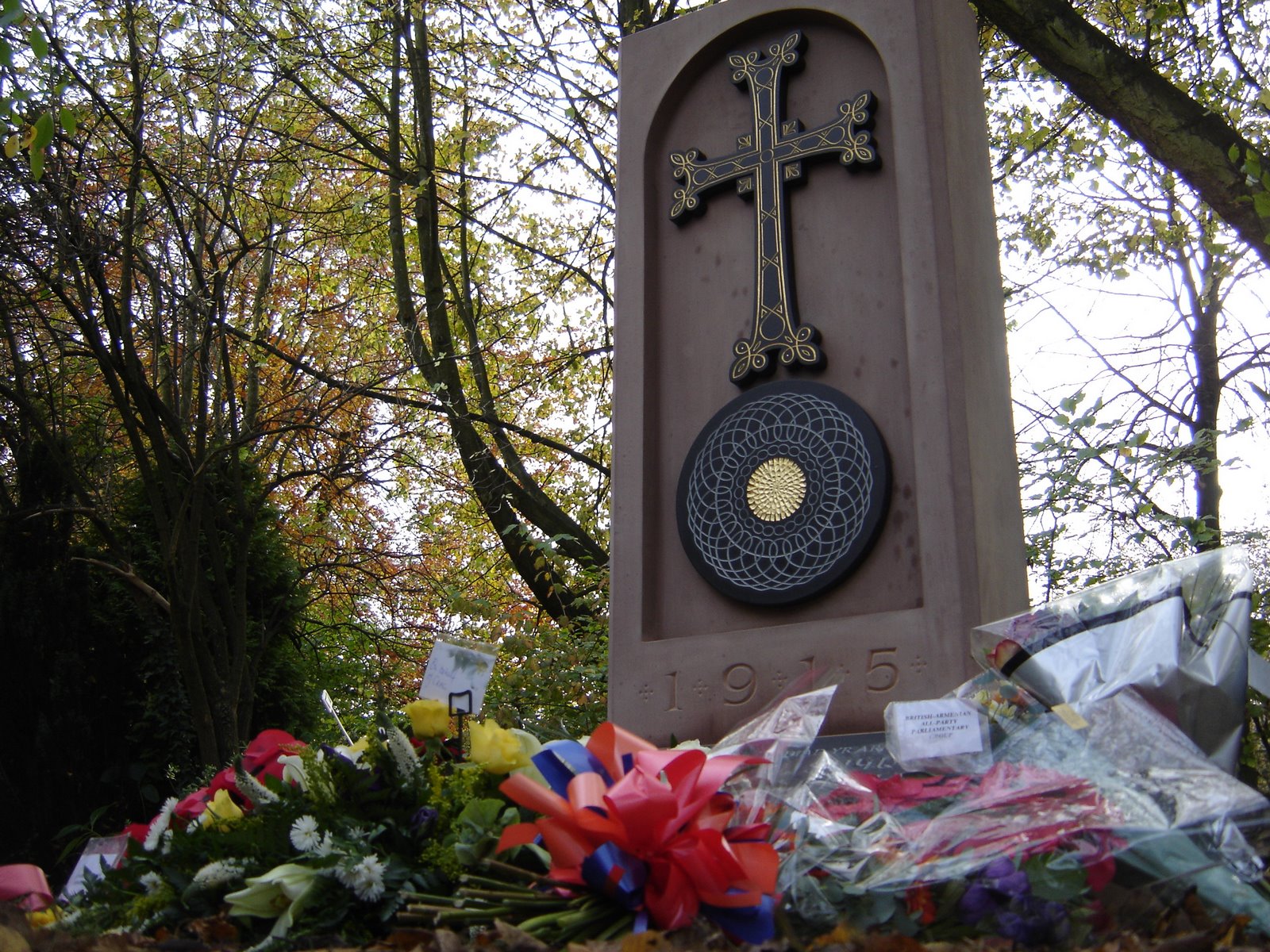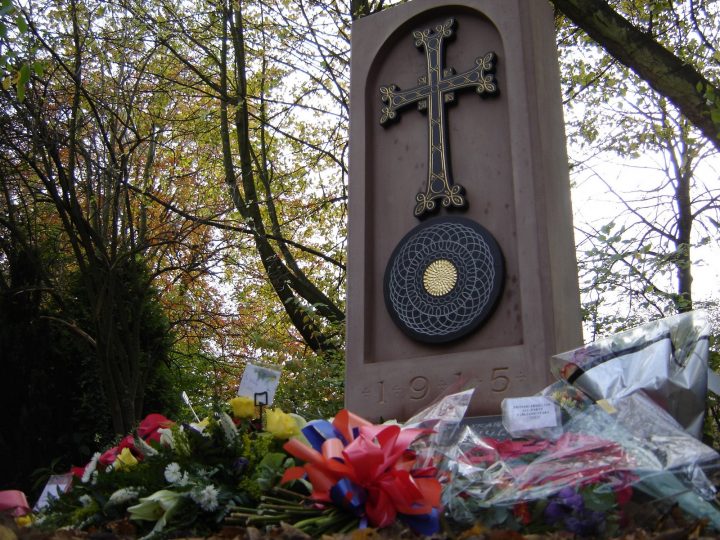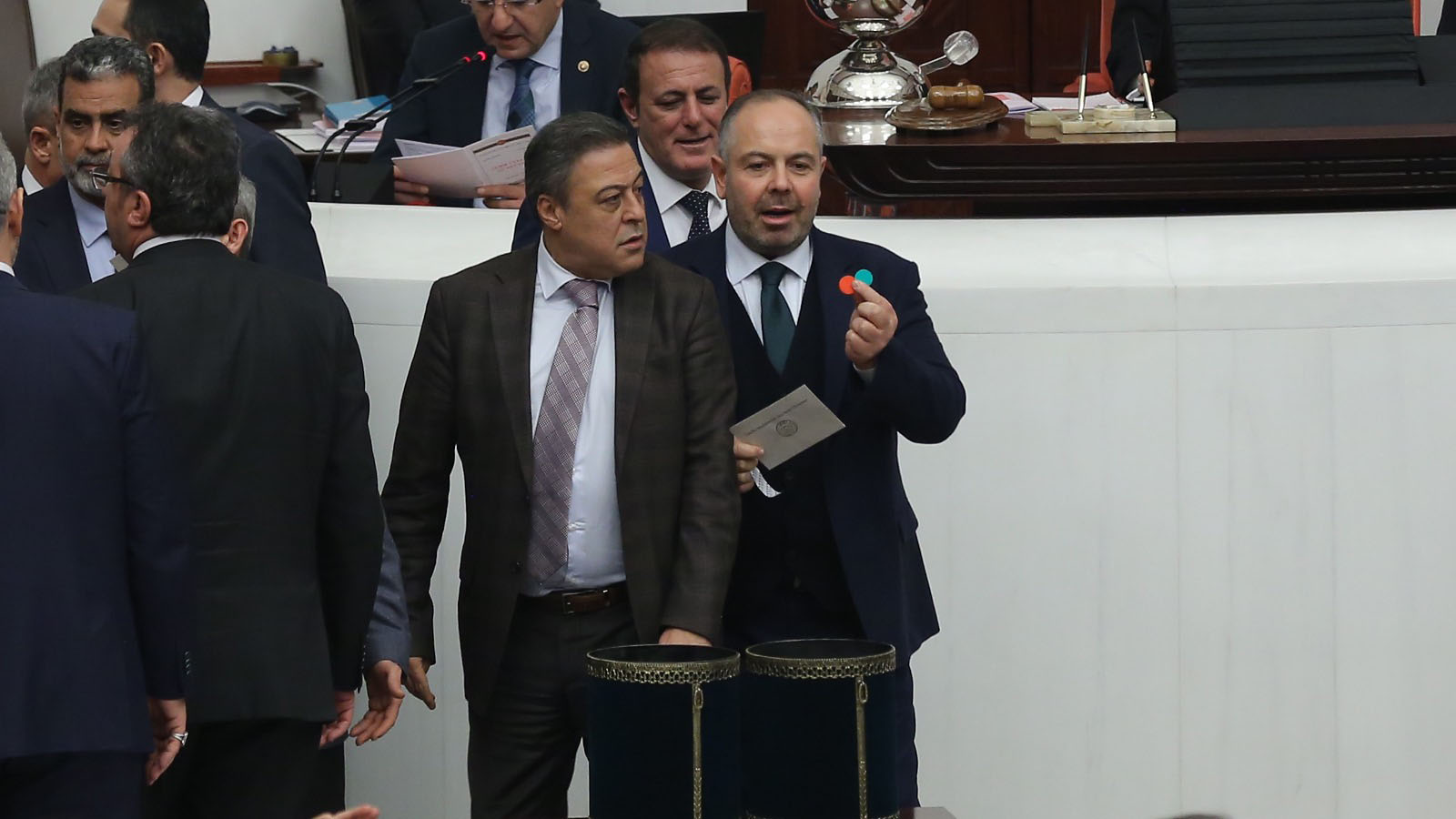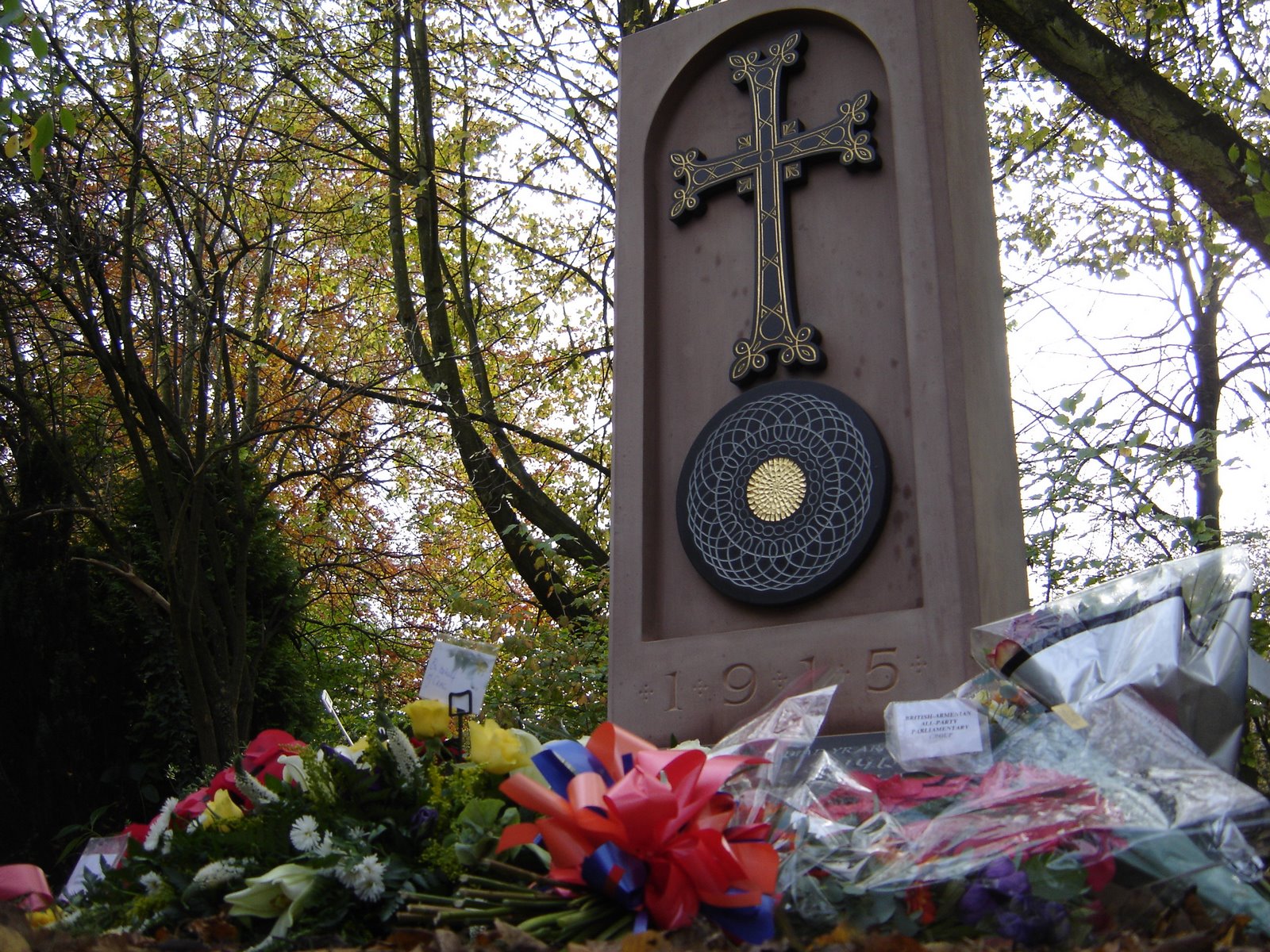The nasty attack on an Armenian memorial reflects the level of debate on the events of 1915
Before and after: this is what Cardiff’s memorial to the Armenian victims of 1915 now looks like. It had been unveiled at a ceremony I attended in November, to the accompaniment of noisy Turkish protests. At the time, I wrote there had been “no incursion into the temple, nor any attempt to reach or deface the memorial.”
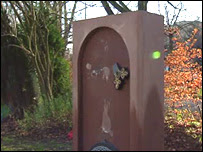 It appears the cross on the khatchkar was smashed off the stone with a hammer on Saturday night, before a ceremony the following morning to mark Britain’s Holocaust Memorial Day. The damaged cross were abandoned at the scene, and has been taken away for prints. There is a police investigation underway, although it appears the nearest CCTV cameras were pointing in the wrong direction at the time.
It appears the cross on the khatchkar was smashed off the stone with a hammer on Saturday night, before a ceremony the following morning to mark Britain’s Holocaust Memorial Day. The damaged cross were abandoned at the scene, and has been taken away for prints. There is a police investigation underway, although it appears the nearest CCTV cameras were pointing in the wrong direction at the time.
The Wales-Armenia Solidarity group called it “a despicable racist attack” and called on the British government and the Turkish Embassy to condemn it. Eilian Williams, from the society, said he blamed Hal Savaş and his Committee for the Protection of Turkish Rights, who organised the Turkish protest at the November unveiling.
A press officer at the Turkish Embassy in London, who would not give me his name, told me he had seen the story carried in some Turkish newspapers today, but had no comment of his own to make. When pressured on whether it was a regrettable incident in terms of Turkish-Armenian relations, he said: “We think it is regrettable that there was a memorial built there in the first place.”
Stephen Thomas, director at the Temple of Peace where the memorial is based, said Sunday’s service “wasn’t specific to the Armenians”, but it featured a reading to mark the assassination of Hrant Dink. The first anniversary of his death was the previous weekend, and there were tense protests in Istanbul for it.
It was an ugly attack and surely took any wind out of the Turkish protest planned to take place during the service. Mr Savaş was there at the service, rather than leading the protest. He told the South Wales Echo: “Whoever has done it should be ashamed of themselves. We would condemn any damage done to any religious monument.”
It is unclear whether anyone will be caught, but it is even less clear why the attack took place at all. The finger can easily pointed at extreme Turkish nationalist groups – to put it politely, such circles can be irrational on occasion – but destroying a cross in some far-off country is utterly pointless. The perpetrators were hardly even recognised for it: Milliyet covered the story deep on an inside page; few other papers bothered. Coverage was scant in Britain too, save the BBC and South Wales Echo.
The blunt reality is that the right people simply don’t care. If there needs to be change in Turkish-Armenian relations, it has to come from the top. But Turkey’s prime minister Recep Tayyip Erdoğan is busy lifting restrictions on headscarves in universities, and Armenia is in the midst of presidential elections. The Cardiff incident is just another episode of mudslinging.
As it did in November, the plain piece of Welsh stone symbolises the gulf between Turkey and Armenia. Sunday went to show once again that it will not be bridged any time soon.
Second photo from the BBC News article “Memorial to ‘genocide’ vandalised”, published Monday 28 January 2008.
James in Turkey took a very long break from November, involving lots of research and reading, as well as the occasional fish supper by the Bosphorus. Normal service – if there ever was such a thing – resumes now.





